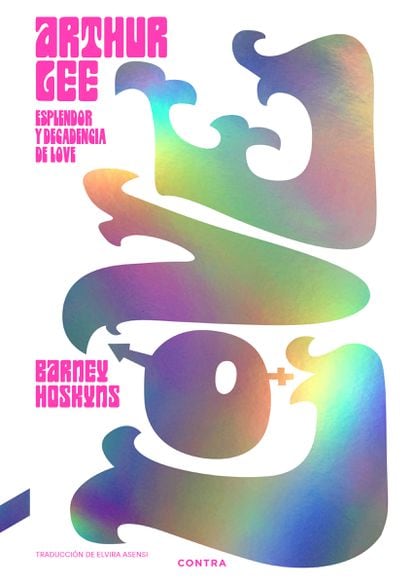Arthur Lee, first from left, with the other members of Love in Los Angeles in 1967. Michael Ochs Archives (Getty Images)
Every once in a while you get asked The Question.
Which is something like “what is a music critic for in the dictatorship of the algorithm?”.
And you answer more or less the usual: we are here to bet on beautiful music, ignoring the sales figures (and now, the number of
likes
).
Hopefully, then you feel that you have served something when, for example, a book is translated as
Arthur Lee: splendor and decadence of Love
(against), from Barney Hoskyns, who focuses on the pinnacle of him,
Forever Changes
.
The type of record that we defended viscerally, even though we knew nothing about its interiors.
Forever changes
came out in the grace year of 1967, but not in Spain: here it would take 10 years to be published (it was published in a collection called
Pioneros
).
By then, Love no longer existed as a collective project.
And it was hard for him to understand that the main architect of the group, Arthur Lee, was precisely responsible for sabotaging Love.
Cover of the book 'Arthur Lee: Splendor and Decline of Love'.
These are the risks of having a charismatic leader, who brought together a handful of candid souls around him... let it be said with all reservations: one of his first guitarists was Bobby Beausoleil, the future assassin of Charles Manson.
Arthur Lee affected the benevolent ways of a
hippy,
but he didn't hesitate to rip off his cronies: when Elektra Records signed Love for $5,000, he ran out to buy a Mercedes sports car;
For the rest, the crumbs remained.
Hoskyns is a British journalist and does not fall into the American taste for looking for family dramas or psychological pathologies that explain the slips of idols.
Lee's decisions were ultimately the result of foolishness: before Love, he insisted on signing with Capitol Records and debuted there in 1963 with a trivial instrumental (“I wasn't going to give them the best repertoire I had”).
What Lee liked was cool.
Wearing cool clothes, living in Béla Lugosi's old mansion, claiming that he discovered Jimi Hendrix before anyone else, believing that the Rolling Stones imitated him.
In reality, he was content to preside over a small circle of Sunset Strip
freaks
rather than go out and conquer the world: he didn't even play the Monterey Pop Festival, the starting point of
the Californian rock
boom .
More laziness than lack of control: Lee and his musicians also did not take advantage of the possibilities opened by the massive success of The Doors, their record company partners, preferring to lament feeling marginalized;
keep in mind that, until then, Elektra was essentially a folk label.
Arthur Lee, in a performance at the Jam Hall in Bergara (Guipúzcoa), in 2004 VINCENT WEST (REUTERS)
His takeoff was meteoric.
In 1966, they recorded two sharp albums and the following year billed their capital,
Forever Changes
.
By then, Bryan MacLean, his partner in compositional tasks, had already displayed all his sensitivity.
With the addition of strings, brass and keys, a bittersweet album emerged that combined luminous melodies and disturbing lyrics, where intergenerational tensions and the Vietnam War reverberated.
A perfect creative formula?
It didn't last: Lee got rid of MacLean, who insisted on collecting royalties and his share of record royalties (not a fortune, but a pinch:
Forever Changes
was a sizeable hit in the UK).
Arthur Lee had that rare ability to shoot himself in the foot.
And excuse the reference to firearms;
it was his attraction to his guns that finally landed him in prison in 1996, a 12-year sentence of which he served half.
Arthur Lee: splendor and decadence of Love
has an exclusive epilogue for the Spanish edition that reveals that Lee also got mad at the author, despite Hoskyns acting as his champion.
The devotion to
Forever Changes
materialized in a triumphant tour at the beginning of the century, where skilled (Swedish) instrumentalists recreated the orchestral arrangements of 1967. He fantasized about the possibility that Lee would re-record his (and McLean's) songs that were left unreleased or frustrated.
For those of us who were able to treat him on those dates, those were naive illusions: Lee was still lost on his particular planet.
And he was running out of time.
Suffering from leukemia, he died one day in the summer of 2006, at the age of 61.
Exclusive content for subscribers
read without limits
subscribe
I'm already a subscriber

